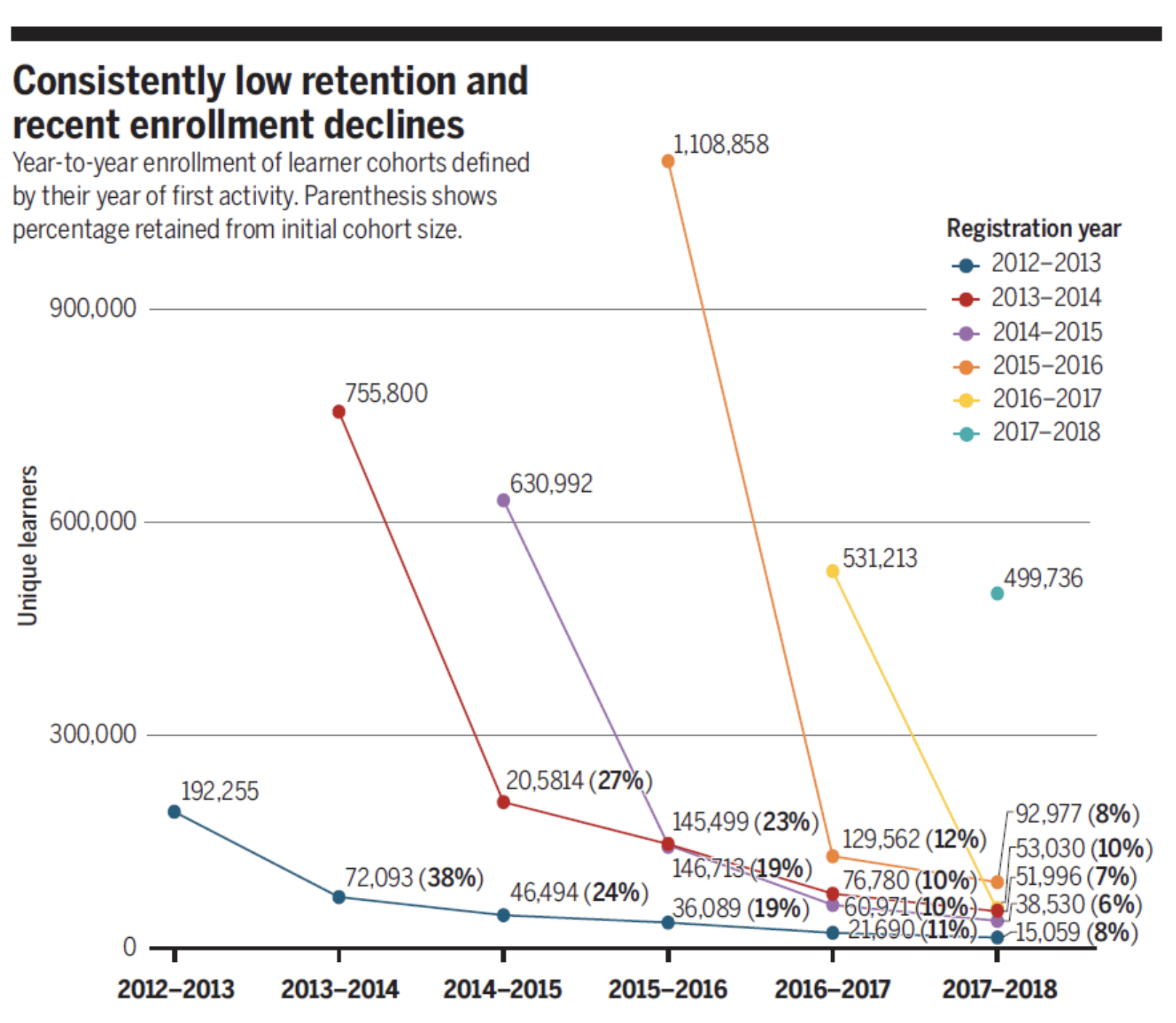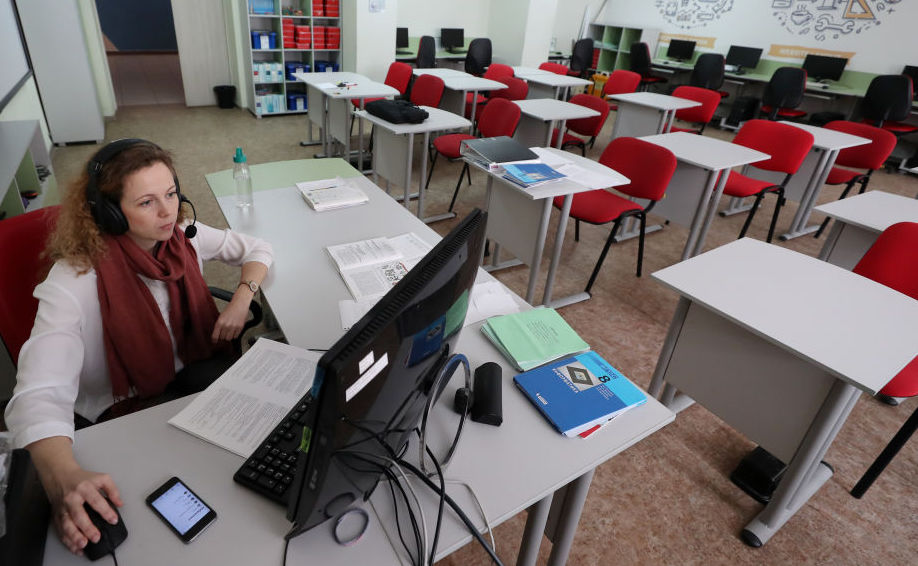Rish Joshi
Over the past few years, personalized learning has established itself as a focal point of innovation in education. Despite the focus, the rate of progress in establishing personalized learning practices in both K-12 school systems and online learning has been slower than expected.
The Bill & Melinda Gates Foundation and the Chan Zuckerberg Initiative have together invested millions of dollars in support of it, and educators such as Sal Khan, founder of Khan Academy, have spoken extensively about its importance in education.
Personalized learning comprises many aspects of learning: letting students master topics before they move on to higher level ones, giving them agency over their learning based on their interests and goals and using teacher-aided instruction and interactivity, to name a few.
Much of the focus on implementing personalized learning practices has revolved around K-12 school systems, where new initiatives have been met with mixed results, and these efforts will continue.
Beyond the K-12 school systems however, online education platforms present a large opportunity for delivering personalized learning experiences to students worldwide, and the level of innovation here has lagged expectations.
Massive Open Online Courses (MOOCs) such as Udacity, Coursera and edX emerged in the early 2010s and helped bring quality content online and make it accessible around the globe. However, they haven’t innovated much when it comes to personalized learning, and studies have shown that they have in fact seen declines in completion rate of courses.
In recent years, startups have built platforms that are powering a gig economy for teachers, enabling them to give live lectures in small-group, highly interactive settings. Apps focused on providing personalized learning experiences for users learning domain-specific skills such as math or languages have shown promise, but there’s room for a lot more innovation on this front.
These newer approaches have the potential to democratize personalized learning by innovating on the software teaching platform, enabling better teacher-aided instruction online, and helping students better understand their mastery of topics.
Slow pace of innovation by early online education platforms
The pace of innovation by MOOCs, particularly when it comes to delivering personalized learning, has been limited for several reasons.
The vast majority of MOOC courses don’t provide the online equivalent of a teacher-aided small-group personalized experience. They rely instead on a lecture-based format with a single instructor creating content for mass consumption, which is highly impersonal.
It’s no surprise that the completion rates for courses on MOOCs have been low and on a decline. A study conducted by MIT researchers analyzed edX course data of over 5 million learners from MIT and Harvard between 2012 and 2018. The study found that the completion rates for verified and all participants ranged between 46%-56% and 3%-4% respectively, and had declined in recent years despite the efforts on research and platform development.

Courses offered by MOOCs have further catered primarily to adult learners interested in a defined range of courses falling within business, technology and related fields. MOOCs haven’t innovated much on new coursework for students in the K-12 learning group, or for adult learners interested in specialized fields such as health care, retail and transportation.
The limited content coverage also affects the level of democratization MOOCs can achieve with respect to the economic classes of learners they’re able to serve. Coursera initially planned to attract learners who weren’t existing consumers of higher education and lived primarily in developing economies. The MIT study showed that MOOCs have in fact struggled to draw learners from developing economies, with over 80% of learners on MOOCs coming from economies rated high or very high on the United Nations Human Development Index.
Khan Academy has been one of the exceptions, with its focus on a broad K-12 education and a viewership that spans the globe. Its instructional videos are bite-sized and engaging, and lessons are structured in a way that encourages personalized learning by allowing students to master skills at their own pace.
Though these early platforms will continue to provide value for the learners they serve, they represent only the first wave of what online education platforms could ultimately become.
Gig economy for small-group, personalized learning online
Though the pace of innovation has been slow over the past decade, newer startups have popped up in the last couple of years that are introducing novel models of online learning and redefining how we think about innovation in online education.
One of the questions being asked is: Could online platforms enable small-group classes online that mimic the classroom and foster personalized learning?
The hope is that such a format could enable a much higher degree of student-teacher interaction than courses offered by MOOCs, while also providing a cheaper and more accessible option than one-on-one tutoring for students around the world.
Outschool and Camp K12 are early-stage startups that have both launched online platforms focused on enabling live small-group sessions for K-12 students with teacher-led instruction and content.
Such a marketplace model gives teachers the ability to create and run their own classes online, which has the potential to create a gig economy for them much as Uber did for drivers and Airbnb did for homeowners.
Outschool, which raised an $8.5 million Series A co-led by Union Square Ventures and Reach Capital last year, has built an open marketplace of live online classes for kids aged 3-18 with courses ranging from math to origami.
Their platform lets teachers create their own course content and structure, with most courses spanning a few weeks, and allows them to keep a hefty 70% of the revenue share. Some teachers on Outschool are earning over $7000 a month and have turned it into a full-time job.
They have seen over 10,000 courses created thus far by over 1000 teachers, and more than 60% of the students have been returning students, which is a far better engagement rate than the one seen for MOOCs.
Camp K12 is pursuing a slightly different model with a managed marketplace, taking ownership of building the curriculum as well as hiring and training teachers, most of whom are college kids and stay-at-home parents. Camp K12 has ongoing training, monitoring, and evaluation programs in place to ensure quality of live online teaching at scale. The platform first launched in India, which is a lucrative market for the K-12 age group, and is expanding to Singapore and the U.S. this summer.
The company raised a $4 million seed round from Matrix Partners and SAIF Partners in March of this year. It has since seen 200% month-on-month revenue growth, and are actively hiring thousands of teachers to match the global need.
One of the unique aspects of Camp K12 is the teaching platform it built from scratch, which focuses on student engagement and bringing aspects from a small-group classroom online through software.
The company’s teaching platform balances one-on-one and group interactions seamlessly through chat and group screen share capabilities, makes it easy for kids to interact and give feedback with emoticons such as “raise hand” and “slow down.” and provides a number of features such as Live Code editors, Live Contests and Polls that teachers can use to keep students engaged and assess their learning in real-time.
The online platform is gamified, allowing students to earn tokens, publish projects and unlock Skills as they learn. These stay with the students beyond a given class, adding to the student’s profile on the platform over time.
A platform such as Camp K12’s provides a much more interactive and personalized experience for teaching than off-the-shelf conferencing products such as Zoom, and enables new pedagogy and interactions that haven’t before been seen in online education. It also opens the door to the idea that more innovation on the teaching platform itself could create game-changing improvements in how effective online platforms could be in helping deliver personalized learning experiences online.
A potential gig economy for education created via small-group learning online would have a large impact on both the supply and demand sides of online education.
Giving educators the ability to teach online from their own home opens up the opportunity to many more people around the world who may not have otherwise considered teaching, and this can greatly increase the supply of teachers worldwide.
It also has the ability to mitigate the discrepancy that’s existed between quality of teaching in urban and rural areas by enabling students to access the same quality of teachers independent of their location.
Such advances are likely to create increased innovation along content coverage and teaching platforms, resulting in newer approaches such as the use of VR and voice to help emulate a classroom setting online.
Automating domain-specific learning with apps
Beyond newer marketplace models for small-group learning, apps built for domain-specific learning also have immense potential for enabling personalized learning experiences.
Language learning has been one area where apps have already shown effectiveness in providing tailored assessment and coaching for users, as evidenced by the success apps built by companies such as Duolingo and Liulishuo have had in helping users assess and improve their language skills.
The ability of such apps to succeed is greatly enhanced by focusing on a specific domain. Areas that can be assessed quantitatively with software, such as language learning, can enable apps to help users understand their level of mastery at a granular level across topics and help tailor content progression based on their learning gaps.
Squirrel AI has become one of the most popular K-12 AI-powered adaptive education apps in China, in a space where companies like Knewton have struggled, by taking a domain-specific approach.
Their adaptive platform breaks down K-12 primary subjects into thousands of granular knowledge points, and uses an initial assessment to help determine a student’s mastery of skills and learning gaps. This helps the system assign study material that focuses purely on the student’s weaknesses in order to help make study time more efficient.
The success of an app such as Squirrel AI, with its focus on K-12 subjects such as math and physics, illustrates that apps can help personalize learning for a range of different areas beyond skills such as language learning using data and algorithms.
A student’s vocabulary knowledge gap could be assessed by taking the list of books read by the student in the past, along with samples of their writing, to help understand which words the student has been exposed to and identify gaps in their vocabulary knowledge.
Multiple choice questions could be tagged using algorithms, identifying granular features such as the type of figure involved in the case of a geometry question, to help assess a student’s learning gaps at a granular concept level.
The potential for advances in online learning to enable personalized learning experiences, both in terms of newer platforms and apps that help assess domain-specific knowledge, are much broader than we can imagine today.
The existing platforms represent the first foray into the use of software to power personalized learning online, and there remains a greenfield of opportunity with potential for many new axes of innovation.































Comment